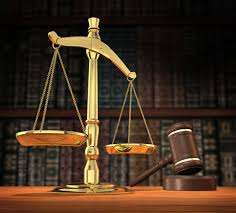Paul Phua, Son Darren Plead Not Guilty in World Cup Betting Case
Malaysian national Wai Seng “Paul” Phua and his son Wai Kin “Darren” Phua pled not guilty on Tuesday in a Nevada federal court on two counts related to the alleged operation of an illegal gambling operation being run from luxury guest villas at Caesars Palace in Las Vegas in June and July.
The elder Phua is alleged to be the ringleader of an international sportsbetting operation that was hurriedly relocated to private guest suites at Caesars Palace after being cracked down upon by authorities in Macau. Paul Phua and 21 others were arrested there in June, and Phua traveled to Las Vegas after reportedly being deported by Macau authorities less than 48 hours after his arrest. The elder Phua is also alleged by prosecutors to be a “high ranking member” of the 14K Triad, an Asian-based organized-crime operation known for various gambling enterprises.
 The Phuas and six other defendants were arrested on July 13th at various locations on the Las Vegas Strip after three luxury Caesars Palace rented by the group were raided by the FBI on July 9th. The six other defendants in the case were arraigned yesterday.
The Phuas and six other defendants were arrested on July 13th at various locations on the Las Vegas Strip after three luxury Caesars Palace rented by the group were raided by the FBI on July 9th. The six other defendants in the case were arraigned yesterday.
The formal arraignment of the Malaysian father and son, who are represented by the high-powered Vegas firm of Chesnoff & Schonfeld, set the stage for a new round of fireworks regarding the Phuas’ bail arrangements. Separately on Tuesday, prosecutors filed a motion to re-open the detention hearing for the pair, presumably to revoke the bail arrangements previously agreed to by the court.
At the present time, the Phuas are free on bail, consisting of $2.5 million pledged by well-known poker pros Andrew Robl and Phil Ivey, who frequently played against the Phuas in high-stakes games in Macau, the US and elsewhere. The $2.5 million was split up as $2 million toward Paul Phua’s bail, and another $500,000 toward son Darren’s. Additionally, the elder Phua’s private Gulfstream jet, valued variously at either $46 or $48 million, was also being held as collateral against a possible flight risk alleged by prosecutors.
That alleged flight risk is at the core of the attempt by USAO prosecutors to re-open the detention hearings. According to the Tuesday filing, a waiver of extradition agreed to by the defendants is legally unenforceable in Malaysia, should the defendants somehow return to Malaysia before their trial on the gambling charges.
The filing claims, “Subsequent to the detention hearing, the Government has learned that the waivers of extradition would do nothing to ensure the defendants’ appearances or facilitate their extradition should they flee. These waivers merely serve to provide the court with a false sense of security, without giving the government any true tools with which to re-acquire the defendants should they flee.”
Nonsense, argued the Phuas’ defense attorneys, David Chesnoff and Richard Schonfeld, who quickly filed a motion to strike the government’s motion, filing it within 24 hours.
First, according to the motion to strike, it was the government itself that asked for the waivers of extradition, even though it should have known that they were likely insufficient. The United States’ own Office of International Affairs [OAI] advised the Nevada federal prosecutors that their waivers of extradition were inadequate.
The USAO’s own brief from Tuesday acknowledges as much. It states, “The Office of International Affairs has advised the United States Attorney’s Office that it is unaware of any country that would consider an anticipatory waiver of extradition binding in its extradition proceeding.” The US doesn’t even have extradition treaties with China or Hong Kong, and the nature of the US’s current agreement with Malaysia makes it unlikely they would surrender the Phuas on charges such as those in this case.
Further, as adamantly noted by Chesnoff and Schonfeld, the other conditions already agreed to by the defendants are argued to be more than sufficient to ensure their appearance at trial. The Phuas have surrendered their passports, are being monitored electronically via ankle bracelets, and are currently staying at the home of another Las Vegas acquaintance, Dr. Craig Hartman. (Additional conditions such as no alcohol or drugs, no gambling, and no internet access have also been imposed.)
Perhaps the largest point raised by the defense revolves around the elder Phua’s private jet, which remains impounded, and the plane’s flight crew, which has already left the country.
Wrote Chesnoff, “It should be noted that the flight crew has returned to Asia, the United States has a security interest in the aircraft that has been registered with the FAA, and the silly suggestion that the defendants could take their plane and leave when you need a crew to file a flight pattern that is approved by the FAA in order to take off demonstrates the futility of the government’s argument.”
The motion to strike also reiterates that the Phuas have fully complied with existing bail terms for more than two weeks since the initial bail agreement, and even remained in the Las Vegas area between July 9th and 13th despite not even being under arrest.
Separately, in the motion to strike, the defense argues that all the conditions were known to the government at the time bail was established. “… [T]he government seeks to violate the Phuas’ due process rights and again attempt to incarcerate them based on information that was readily known to the government at the time of the bail hearing. This violation of due process and the right to bail cannot be condoned.”
Elsewhere, Chesnoff and Schonfeld noted that, “The Phuas are human beings who must be afforded due process, and they cannot be used as human ping pong balls.”



















COMMENTS